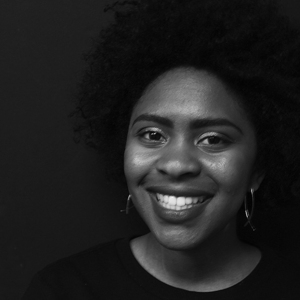Colvin: ‘Zoolander 2’ trailer perpetuates trans* ‘otherness’
People who identify as the sex they were assigned at birth never get asked about their genitalia, yet trans* people are subject to this invasive interrogation all the time.
The viral trailer for long-awaited “Zoolander 2” has faced continuous backlash for its depiction of trans* people. High-profile transgender model Hari Nef called out the teaser in an MTV interview on Tuesday and a petition to boycott the film has garnered more than 18,000 signatures as of Wednesday night.
The controversy surrounds the segment in which Benedict Cumberbatch portrays an androgynous model named All. Derek Zoolander asks All if they are male or female. Zoolander’s sidekick, Hansel McDonald, clarifies: “What I think he’s asking: Do you have a hot dog or bun?” and to that, All coyly giggles.
Like the first film, “Zoolander 2” is social commentary on the fashion industry and Hollywood culture. Part of the brilliance of the series is its absurdity and its penetrating — but not heavy-handed — satire. However, the writers of “Zoolander 2” should have taken on the rise of trans* fashion models in a more gracious, but still clever way.
While senses of humor vary from person to person, there is a difference between telling an obnoxious or off-color joke and disrespecting a person’s existence. The film’s representation of transgender and agender individuals is distasteful as it reduces trans* identity to a matter of genitals.
The trailer’s offensive joke perpetuates an intrusive approach to understanding gender identity. Inappropriate questions about a transgender person’s genitalia miss the point in that not all trans* people have the resources to undergo sex reassignment surgery and even more importantly, not all trans* people want to transition. Regardless of their personal decision, a trans* person’s identity is still valid.
Mainstream American media is seeing an increase in the frequency of LGBTQ-identified characters, but more often than not, a queer person’s characterization leaves much to be desired. They usually lack dynamic and function as the butt of a joke.
The most popular example of fair transgender representation is Sophia Burset, a trans* inmate in “Orange is the New Black,” and she is as valuable to the plot progression of the show as any of the other women. On the occasion that Burset is an object of ridicule in the show, her trans* identity is used to illustrate the discrimination, social isolation and physical violence trans* people face from their families, peers and the American prison system.
In contrast to a character like Burset, Cumberbatch’s role as All only feeds into the public’s obsessions with trans* bodies and highlights their “otherness” instead of maintaining their humanity.
Taking cues from a show like “Orange is the New Black,” “Zoolander 2” should have opted for using its popularity to send a positive message about trans* people instead of making trans* identity a punch line.
As the writer, director and producer, Ben Stiller could have made the film more progressive without sacrificing his signature humor. He should have enlisted notable trans* models, such as Carmen Carrera, Juliana Huxtable or Andreja Pejić to make cameos or help behind the scenes. All of these women have had acting experience in some capacity and if anyone could tell Stiller about what it is like to be a real-life trans* super model, they would know.
Seeing one of these models have a fierce pose competition to the death with Zoolander or maybe even take a few cracks at him would have been a lot cooler than McDonald’s joke at the expense of trans* people.
Major box office films rarely have trans* characters, and when they do, they are almost always portrayed by cis actors. “Zoolander 2” missed an excellent opportunity to change the game when it comes to trans* representation on the big screen. And while the idea of including a trans* person in any way may always seem like a good idea, writers should take care in how a character’s queerness plays into a piece’s story arc.
If “Zoolander 2” really wanted to push boundaries, then it should have targeted transphobia, not trans* people.
Caroline Colvin is a sophomore magazine journalism major. Her column appears weekly. She can be reached at [email protected] and followed on Twitter at @fkacaro.
Published on December 3, 2015 at 1:02 am





